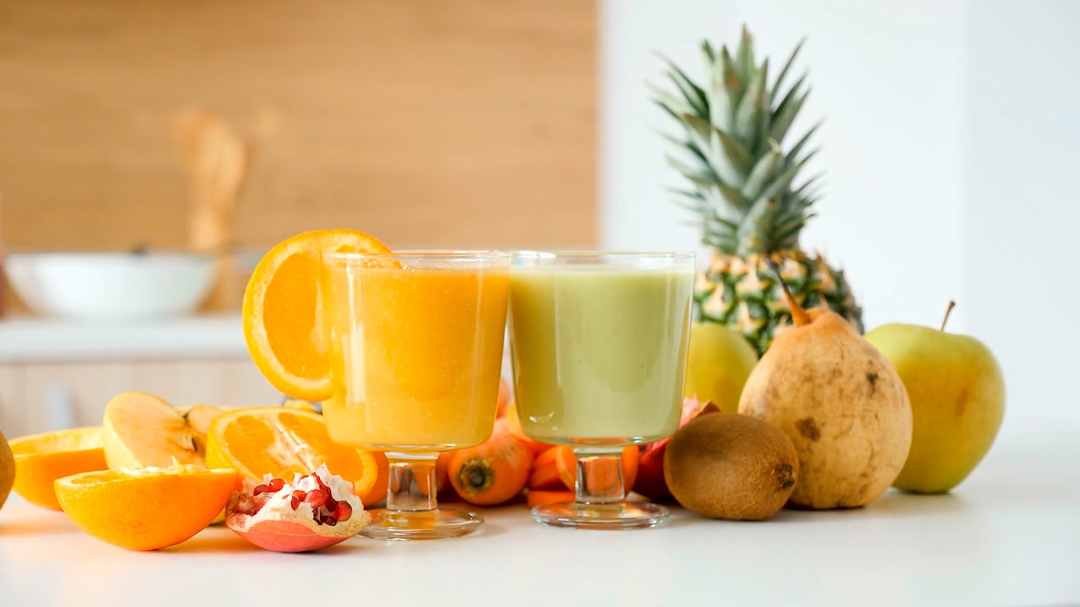
Unlike artificial sugar alternatives, usually created from chemicals, stevia is a plant-based sweetener derived from the leaves of the plant species Stevia rebaudiana, an herbal shrub native to South America. Stevia producers extract sweet molecules called steviol glycosides from the leaves and then filter and purify the extract to reduce bitterness. In addition to pure stevia extract, sweeteners made from a blend of stevia ingredients are also available in the market.
In recent years, there has been a rising demand for natural sugar substitutes as a healthy and natural substitute for sugar. Here are some of the benefits of switching to it.
1. Helps with Weight Loss
Stevia contains zero calories, which is in stark contrast to white table sugar. Did you know a mere tablespoon of it contains 15 calories? By using stevia in place of sugar with coffee or tea, sweets, baked products, and other food items, you can limit your calorie intake. That means you’re reducing your energy intake, which helps in weight loss. And you can lose weight without sacrificing the joy of eating sweet goods.
2. Controls Blood Pressure
Sugar-sweetened beverages are said to elevate blood pressure. Stevia, on the other hand, has the potential to control high blood pressure. That’s because it has cardiotonic actions, which help lower your blood pressure as well as regulate your heartbeat.
3. Good for Diabetics
There are more than 400 million people in the world who suffer from diabetes, according to the World Health Organization. For these individuals, stevia is a great sugar substitute. Although 100 to 300 times sweeter than sugar, consuming it won’t spike your glucose and insulin levels. In fact, stevia is said to help reduce sugar levels in diabetics, as it helps restore normal pancreatic functions. It can especially be helpful for those who have type 2 diabetes.
4. Helps Improve Cholesterol Levels
Regular intake of stevia instead of sugar can also improve your cholesterol levels. Studies suggest that it “significantly” helps improve cholesterol levels, triglycerides, and LDL cholesterol (bad) while increasing HDL cholesterol (good). By using stevia, you reduce the risk of cardiovascular disease.
5. Prevents Tooth Decay
Stevia is good for your teeth as well. In fact, researchers say it won’t contribute to tooth decay, as the sugar substitute doesn’t contain fermentable carbohydrates, which are the main source of bacteria that causes tooth decay.
6. Source of Antioxidants
Antioxidants are compounds that help neutralize harmful free radicals in our bodies and lower the risk of illness, including heart disease and cancer. Stevia, according to studies, is a good source of antioxidants. Its applications in foods and beverages, therefore, can help prevent or reduce damage caused by oxidants.
7. Provides Opportunity For Culinary Innovation
Culinary exploration has expanded with the adoption of Stevia as a sugar substitute, allowing chefs and home cooks to undertake an extraordinary journey into the realm of gastronomic creativity. At the forefront of this revolution, culinary artists are diving into the intricate interplay of textures, flavors, and the delicate sweetness that Stevia adds to their creations. They are rediscovering traditional recipes and infusing them with a newfound health awareness that blends seamlessly with the pleasures of the palate as they navigate this uncharted territory.
8. Creates A Greener Footprint
The adoption of Stevia is more than a mere transition in dietary preference. It is a firm commitment to environmental sustainability. With the consequences of resource-intensive practices being felt worldwide, the adoption of Stevia serves as an emblem of responsible consumption. The cultivation of Stevia doesn’t require as much land, water, or resources as conventional sugar, making it much more environmentally friendly. The ecological burden of agriculture can be reduced by embracing Stevia. This sweetener not only treats taste buds but also helps mitigate the carbon footprint of food production. Vital water resources are also preserved, and deforestation is lessened by this shift in sweetening preference.
9. Empowers Local Economies
Embrace Stevia not just for dietary preferences but for its potential to empower and stimulate local economies. Communities of thriving Stevia cultivation regions can experience an economic revival fueled by the growing demand for this natural sweetener. By supporting local farmers and their sustainable methods of Stevia cultivation, land stewardship is embraced, and economic resilience is increased. Through this loop, livelihoods are reinforced, and pride is fostered in contributing to the global sustainable movement.
10. Allows For Mindful Indulgence
As Stevia becomes more prominent in the culinary environment, it instills a fresh attentiveness in eating. Its delicate sweetness serves as a heartbreaking reminder of the delicate waltz between pleasure and well-being. Each bite becomes a chance to pause, appreciate, and cherish the exquisite balance created between sensations that excite the senses and decisions that nourish the body. This increased awareness encourages people to savor every taste, building gratitude for the rich treasures that nature bestows on us.
The Ease of Adopting a Healthy Lifestyle
As you can see, stevia is an excellent alternative to sugar. Today, this sugar substitute is approved for use in countless products, such as soft drinks, health supplements, yogurt, flavored milk, dressings, sauces, and confectionery. When buying products containing stevia ingredients, you’re thereby adopting a healthful lifestyle. Stevia not only reduces your sugar intake and prevents tooth decay and inflammation but also helps you fight diabetes, obesity, high blood pressure, and other diseases.
Conclusion
In conclusion, stevia is a game-changing alternative to regular sweeteners. Because of its natural origins and unique advantages, such as calorie reduction, blood pressure regulation, diabetes management, cholesterol improvement, tooth decay prevention, and antioxidant supplementation, it is an excellent nutritional option. Beyond personal health, its implementation promotes environmental sustainability and local economies, as well as creating a conscious approach to excess. Stevia is becoming more popular in culinary landscapes, providing a balanced combination of enjoyment and well-being. Accepting this beautiful transition represents not simply a change in nutrition but also a purposeful commitment to holistic living.
Comments
comments